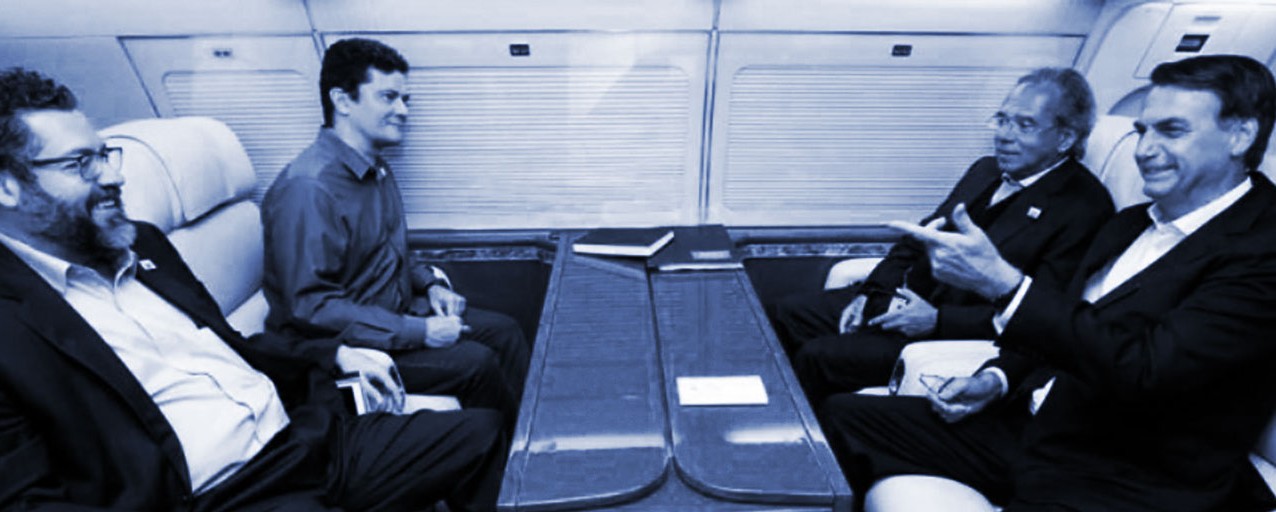President Donald Trump and Brazilian President Jair Bolsonaro will meet in Washington, D.C. later this week in a highly-anticipated gathering. The two men are not only the presidents of the two largest countries in the Americas, but also the two most important leaders of the conservative right-wing nationalist wave.
Trump has never shown real interest in Latin America and has consistently portrayed the region as hordes of illegal immigrants invading the U.S. It is thus not entirely clear what he expects from these meetings. What is certain, though, is that Trump is eager to meet someone he sees as a close ally in a region where U.S. actions, and especially overt encroachments, have historically been received with a huge degree of skepticism and often concerted resistance.
Trump’s enthusiasm for Bolsonaro was on display right after his Brazilian counterpart’s election last October, when the U.S. president cherished the fact that Bolsonaro was being called the ‘Trump of the Tropics’ by the international media. Trump also declared then that he looked forward to working closely with someone he considered well-attuned to the goal of making their respective countries “great again.”
Trump is not alone in his excitement about Bolsonaro. Some of his closest advisors see him as part of a nationalist crusade for conservative cultural mores, rather than part of an anachronistic sense of greatness of a great past now under threat. Of special relevance, National Security Advisor John Bolton and former campaign manager Steve Bannon have both met with Bolsonaro and have voiced their eagerness to close ranks with Brazil’s new right-wing extremist president. But in spite of what some have even referred to as a “bromance,” we have yet to see whether the gathering between these two nationalist leaders can produce beneficial outcomes to their nations.
There is not much reason for optimism if one moves beyond the rhetoric and considers the actual policies each president is seeking to promote. Where Trump has consistently attacked free trade agreements and pushed for strong protectionist positions to purportedly defend the U.S. economy, Bolsonaro was elected on the basis of a strongly revamped neoliberal platform of free trade. Moreover, in many areas, such as the exports of agriculture commodities going primarily to China, the U.S. and Brazilian economies are competitors. It is unclear how talks of cooperation or even division of market access could be easily pursued in these areas.
Brazil’s current administration is looking to increase its military capabilities by establishing a closer alignment with the U.S. military and is counting on America’s support in an effort to join the Organization for Economic Co-operation and Development (OECD). In return, Brazil is offering to waive its visa requirement for American tourists and maintain a welcoming environment for U.S. investors, particularly in oil extraction. These more promising avenues for partnership notwithstanding, there are reasons to keep expectations low on both sides.
Despite effusive levels of support for America’s confrontational approach to Venezuela by Brazil’s foreign minister Ernesto Araujo, it is hard to expect that Brazil will embark on such a perilous path of military involvement in the continent, as Bolton and Trump would like. In fact, Araujo’s enthusiasm for getting involved in Venezuela was challenged by Brazil’s vice president, General Hamilton Mourão. He is viewed as someone who is less extreme than Bolsonaro and more closely attuned to the country’s traditional military and geopolitical positions.
Bolsonaro’s ideological views, political style and path to the presidency of Latin America’s largest country do present many similarities to Trump’s, which may prove conducive to a closer alignment between the hemisphere’s largest economies and societies. However, this is not the first time that the administrations of the two countries appeared to be aligned only to later discover that true cooperation requires more than rhetorical statements of friendship – this in fact was a reality that defined much of the bilateral relations between the two countries for much of the Cold War. Should this gathering produce consequential results, especially constructive ones, both nations will have to engage in effective, mutually respectful partnerships beyond the superficial ideological proximity of their current leaders.
Rafael R. Ioris, is an associate professor of Latin American history at the University of Denver.
[qpp]

